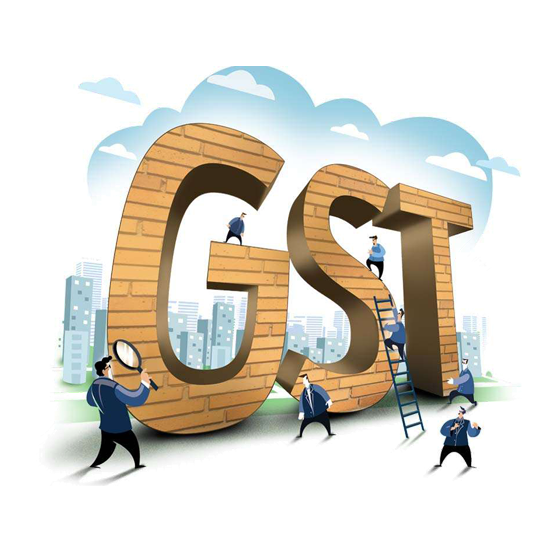- Business Startup
- Startup-Indian Entities
- Startup-Foreign Entities
- Business/Entity Conversion
- Business Registration
- Tax & ROC
- Yearly Tax Compliances
- Income Tax Return Filing
- ITR for Salaried Individuals/ Pensioner
- ITR for Capital Gain
- ITR for Companies
- ITR for House Property Income
- ITR for Income from Business
- ITR for Individuals having Share Trading
- ITR for NRIs and Resident with Foreign Income
- ITR for Partnership Firm/AOP/BOI
- ITR for Presumptive Income
- ITR for Speculation Business
- ITR for Trust, NGO and Companies
- Advisory on Tax Savings
- TDS Return Filings
- LTCG Filing and Advisory
- Income tax Notice Compliance
- Basic
- Standard
- Premium
- ITR for House Property Income and Other Source Income
- ITR for Capital Gain
- ITR for NRIs and Resident with Foreign Income
- ITR for Individuals having Share Trading or Casual Income
- ITR for Speculation Business
- ITR for Income from Business and Profession
- ITR for Presumptive Income
- ITR for Partnership Firm/AOP/BOI
- ITR for Companies
- ITR for Trust, NGO
- Advisory on Tax Savings
Yearly Tax Compliances
ITR for Salaried Individuals/ Pensioner
Income Tax Return Filing
- GST
- GST Registration (₹799)
- GST Accounting
- GST Return Filing
- GST Annual Return
- GST LUT Submission
- GST Taxpayer Registration
- GST Registration for Foreign Entity
- GST Registration Cancellation
- GST-Revocation of Cancellation
- GST Return Filing Packages
- E-way Bill Submission
- Ask an Expert-GST
GST Registration & Cancellation
- IPR
- Trademark
- Trademark Registration (₹5799)*
- Trademark (Individual) Registration
- Trademark with Logo Designers (Individual)
- Trademark with Logo Designers (Company)
- Trademark Objection Management
- Trademark Renewal
- Trademark Renewal (Company)
- MSME Compliance Trademark Registration
- Trademark Restoration
- Trademark Assignment
- Trademark Hearing
- Trademark Opposition
- Trademark Infringement
- Trademark Investigation
- Trademark Logo
- Copyright
- Copyright Registration
- Copyright Objection
- Computer Software Copyright
- Logo Copyright for Goods
- Songs Copyright
- Sound Recording Copyright
- Logo Copyright for Service
- Artistic Work/Painting Copyright
- Cinematography Copyright
- Copyright a Book
- Literature/Dramatic Copyright
- Music Notation Copyright
- Phrase/Slogan Copyright
- Symbol Copyright
- Patent
- Design
Trademark
- Trademark
- Compliance
- LLP Annual Compliance
- Winding up of Inactive LLP
- LLP Winding up by NCLT
Initial Compliance
General LLP Compliance
Changes in company
LLP Annual Compliance/ Closure
- Pay Roll
- Company
- Blog
Continue shopping “Manage Payroll Services (Pro)” has been added to your cart.
Goods and Service Tax
GST Casual Taxpayer Registration (Premium)
GST Casual Taxpayer Registration (Premium)
- Overview
- Points to remember
- Process
GST Casual Taxpayer Registration (Premium)
Goods and Services Tax or GST has been implemented in India from 1st July, 2017 and casual taxable persons are also required to obtain GST registration and file GST returns. According to the GST Act, “casual taxable person” means a person who occasionally undertakes transactions involving supply of goods or services or both in the course or furtherance of business, whether as principal, agent or in any other capacity, in a State or a Union territory where he has no fixed place of business. A casual taxable person is mandatorily required to obtain GST registration irrespective of annual aggregate sales turnover.
One Class 2 Digital, first month GST return filing and completely managed GST registration service till obtaining GSTIN with Expert Support. Inclusive of all government fee and taxes.
Advantages of Goods & Services Tax (GST)
1.Unified Platform
With the implementation of GST in India, the indirect taxes would be streamlined and standardized. Under GST regime, businesses would no longer have to obtain multiple VAT registration in different States or obtain a separate VAT and Service Tax registration. A single GST registration would be sufficient across India for selling or purchasing goods or providing services.
2.Subsuming of Taxes
subsumes various other taxes like Central Sales Tax, Additional Customs Duty, Purchase Tax, Luxury Tax, etc., Hence, under GST, many of the taxes in existence today would be subsumed and made into one tax. This would make tax collection and compliance easy for businesses across the country.
3.Lower Taxes
Currently in some states under the VAT regime, businesses are required to comply with VAT regulations once they cross an annual turnover of Rs.5 lakhs. Under GST regime, GST liability accrues only if an entity crosses an annual turnover of Rs.10 lakhs in northeast or hill states, whereas for rest of India, the threshold is set at Rs.20 lakhs.
4.Ease of Doing Business
Currently, many businesses like restaurants, computer sales and services businesses have to comply with both VAT and Service Tax regulations. This creates a compliance burden on the business, as they have to calculate taxes for the transaction based on different rates for different items. Under GST, the distinction between goods and services will be gone – making doing business easy.
5.Larger Tax Base
GST is expected to increase the tax base in India significantly. Hence, the overall tax liability for businesses is expected to reduce overtime, as more and more businesses become compliant. Further, GST will use the latest in technology, including data from Aadhaar database, PAN database, etc., to make GST registration and GST return filing process, as seamless as possible.
GST Casual Taxpayer Registration (Premium)
₹3,599.00
To make tax compliance easier, the income tax department has categorized taxpayers into many groups based on income and its source. So, you need to file your returns accordingly. Registers with GST Casual Taxpayer Registration (Premium) plan and enjoy the benefits
Benefits of GST Registration ?
-
The GST will consolidate Central Excise Duty, Service Tax, VAT, Central Sales Tax, Customs Duty, Central Surcharge & Cess, Octroi, Luxury Tax, Entertainment Tax, Purchase Tax and a few other indirect taxes. The GST will apply on all goods and services. Even petrol and petroleum products will eventually be subject to it.This would make tax collection and compliance easy for businesses across the country.
-
The GST council has decided on a four-tier structure. The GST rate will depend on the type of goods and services. Currently, the slab rates are 5%, 12%, 18% and 28%
-
Currently various businesses like restaurants, computer sales and services businesses have to deal with both VAT and Service Tax regulations resulting compliance burden on the business, as they have to calculate taxes for the transaction based on different rates for different items. With the Implementation of GST Business will be made easy
-
Since in some states under the VAT regime, businesses are required to comply with VAT regulations once they cross an annual turnover of Rs.5 lakhs. Under GST regime, GST liability occurs only if an entity crosses an annual turnover of Rs.10 lakhs in northeast or hill states, whereas for rest of India, the threshold is set at Rs.20 lakhs.


























